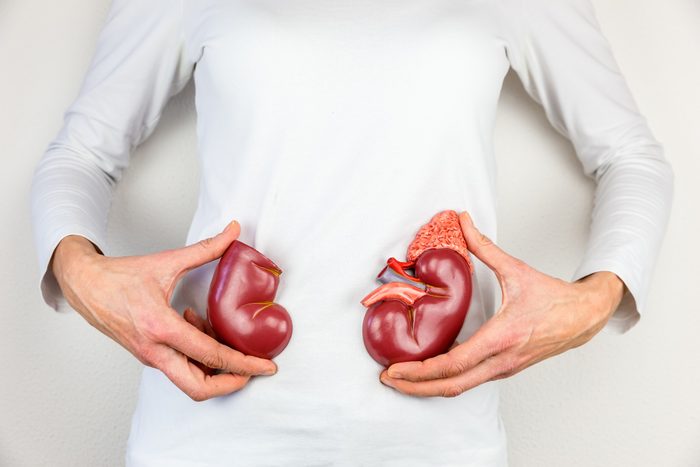
Kidney infection symptoms
Kidney infections are relatively rare, but can be serious. Known medically as pyelonephritis, kidney infections can occur when you have a bladder or urinary tract infection (UTI) and the bacteria travel up the ureters (the tubes that connect the kidney to the bladder).
In fact, kidney infections are actually considered a type of UTI, so the symptoms can be similar. There are about 100,000 hospital visits for UTIs in the U.S. each year, and most of them are due to kidney infections.
While anyone can get a kidney infection, they are more common in women than men because women are more prone to UTIs due to their anatomy. Women ages 15 to 29 are particularly at risk, and you can also be at greater risk of a kidney infection if you are pregnant, have a weakened immune system, or diabetes.
If you recognize the following signs, that means you could have a kidney infection. Infections can be treated with antibiotics, however you may need to be treated in the hospital depending on the severity of infection. (Here are 42 signs your kidneys are in trouble.)
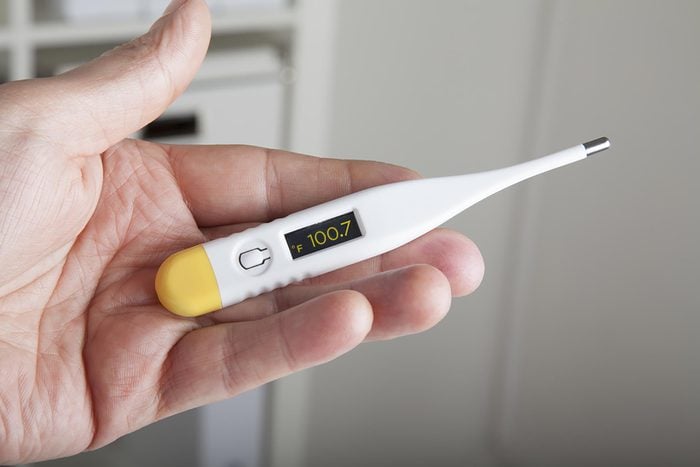
Fever and chills
Bladder infections don’t normally cause a fever, so running a temperature could indicate the infection has traveled up to the kidneys, says Charles Modlin, MD, MBA, a urologist with Cleveland Clinic. As your body ramps up its immune response, your body temperature can climb. (Learn which everyday mistakes could cause kidney problems.)
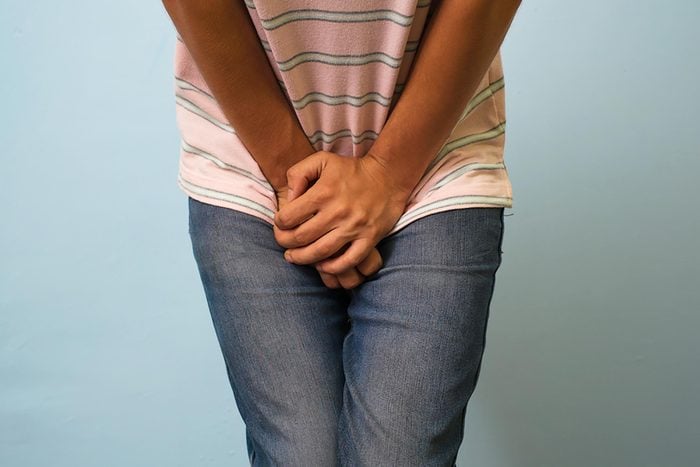
Groin pain
Men might feel the pain of a kidney infection deep in the groin. “When we’re in utero as embryos, our kidneys start lower in our body, and as the fetus grows, the kidneys ascend,” says Dr. Modlin. “They have that same nerve supply as some of the structures down in the groin.”
You might think your testicles are the problem, for example, but if you have other UTI symptoms your doctor will test for a kidney infection. (Find out if cranberry juice helps treat a UTI.)

Back pain
An infected kidney will swell and be tender; it can press up against the renal capsule that covers the kidneys, says Dr. Modlin. Because your kidneys sit closer to your back than to your belly, that sharp or dull pain would manifest in your lower back, says Nicole Ali, MD, a nephrologist at NYU Langone.
“We’ll give a little bit of a tap to the lower back, and if that hurts, then we suspect the infection has traveled to the kidneys,” she says. (Here are the signs your back pain is an emergency.)
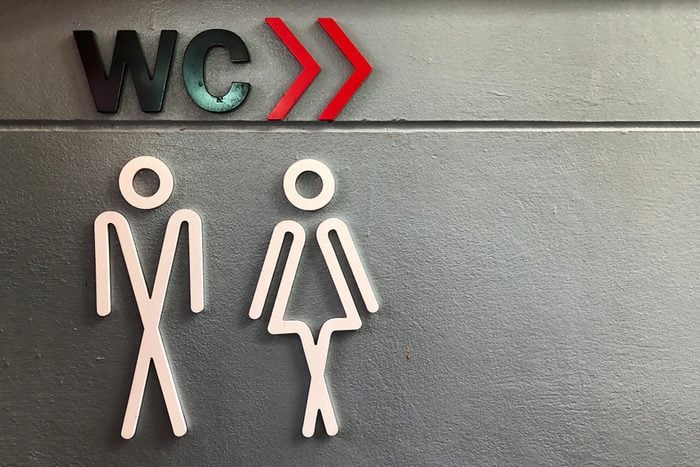
Urge to pee often
That initial bladder infection irritates the organ’s tissues and will probably send you to the bathroom more frequently—it’s one of the earliest kidney infection symptoms says Dr. Modlin.
“The bladder senses that irritation and wants to get rid of the irritation, so it contracts,” he says. When it tightens, you’ll feel like you need to pee, even if your bladder is near empty. (The urge to pee is also one of these signs of an overactive bladder.)
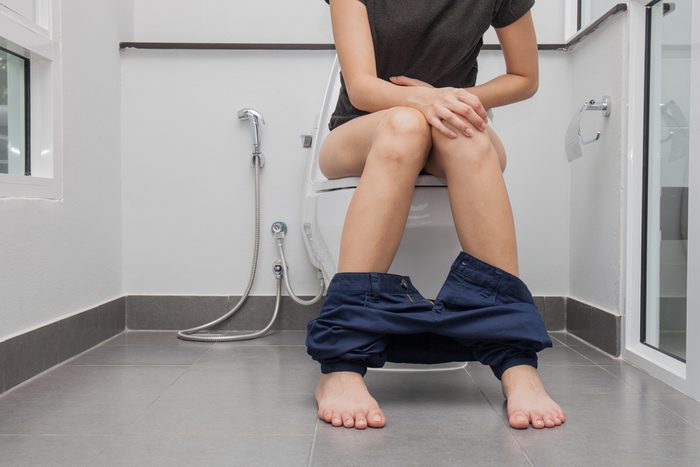
Pain when peeing
Because a kidney infection is a type of UTI, you’ll have inflammation all the way down your urethra. The bacteria don’t just invade the lining of your bladder and kidneys, explains Dr. Modlin: They’ll infiltrate the tissue and nerve endings of your urinary tract, activating pain receptors in the area. When it’s time to pee—ouch.
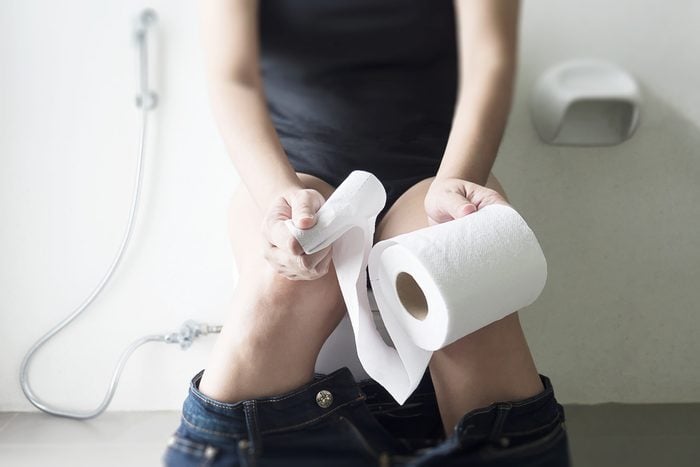
Bloody urine
Most kidney infections will start with bacteria that travel up the urinary tract to the bladder; the infection can then make its way to the kidneys. Because women have a shorter urethra than men, they’re at higher risk for UTIs—and that leaves them more vulnerable to kidney infections. Frequent intercourse or a new partner may also increase a woman’s risk, says Dr. Ali. As the body fights the infection, red blood cells can end up in your urine, she says.
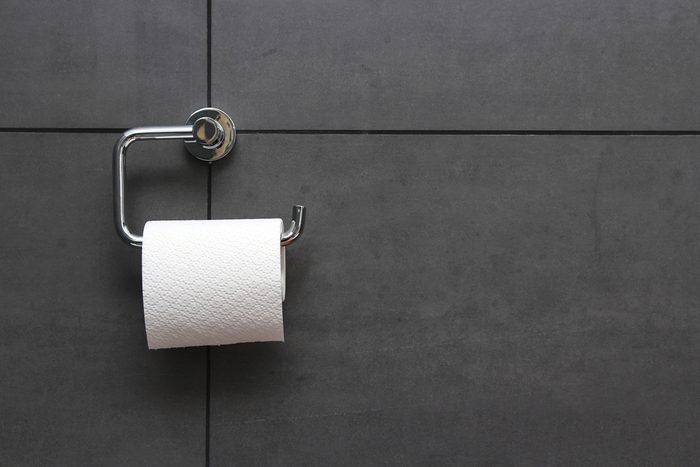
Problems emptying the bladder
In rare cases, problems peeing might be the cause of bladder and kidney infection symptoms rather than the symptom, says Dr. Ali. For men, an enlarged prostate can press against the bladder; for women, it could be the bladder dropping during menopause. Either condition can prevent the bladder from emptying completely; the leftover urine can collect bacteria, which leads to an infection.
If you’ve had repeated urinary tract infections—especially men since they’re less likely to get UTIs—talk to your doctor about possible bladder issues. (And keep an eye out for these common UTI symptoms.)
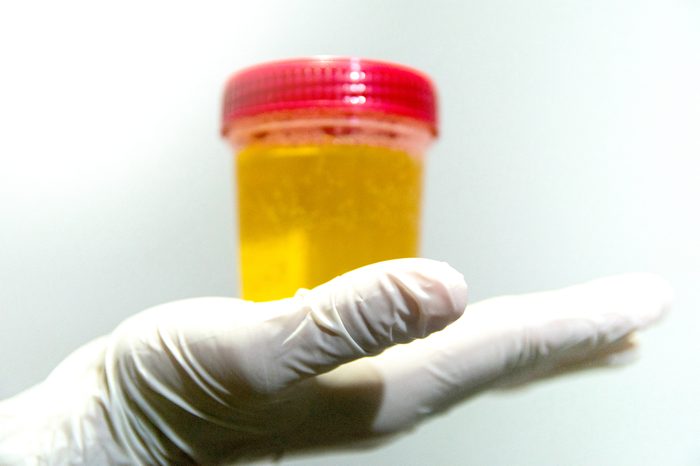
Cloudy urine
During a kidney infection, your pee might look cloudy. “Your body is sending white blood cells to fight the infection,” says Dr. Ali. “What you see in the urine is blood cells and bacteria building up.” (Find out what else your urine reveals about your health.)

Foul smelling pee
Noticing a stench when you urinate could be another one of the kidney infection symptoms you experience. “That’s the fermentation of the bacteria,” says Dr. Modlin. Don’t jump to conclusions if it’s your only symptom, though. Cloudy, strong-smelling urine can also be a sign of dehydration, he says, so see if drinking more water helps.
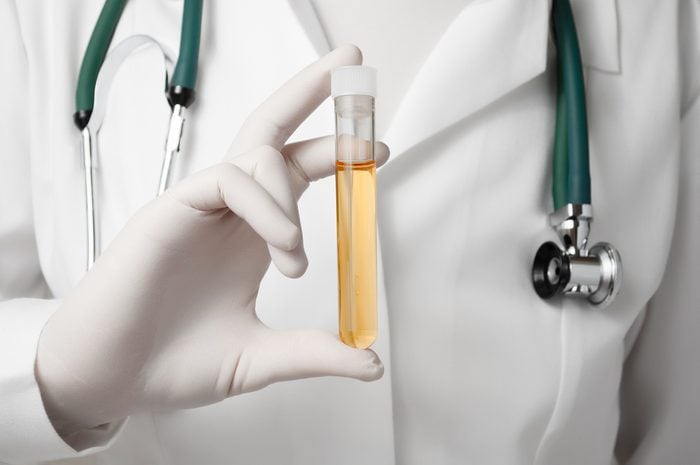
Pus in the urine
In severe cases, you might see pus when you pee because of a buildup of white blood cells and bacteria, says Dr. Ali.
“At the point where someone is seeing pus in the urine, they probably have a bad infection or abscess in the bladder,” says Dr. Ali.

Dizziness
An untreated kidney infection can spread to your bloodstream, wreaking havoc on your whole body. “That inflammation from the bacteria is causing your blood vessels to dilate, which makes the blood pressure drop and makes you dizzy,” says Dr. Ali. The shock to your body can be serious and require an IV in a hospital, says Dr. Moldin.
Next, check out the pains you should never ignore.